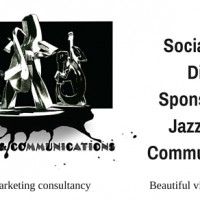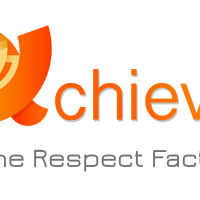
Social Media Digest - A Case Study About the Power of Social Media
The Internet is a vast number of inter-connected computers that allows people to have access to information on an unprecedented level of efficiency. It also puts the power in the peoples’ and marketers’ hands in many ways:
- Middlemen can be cut out because the customer goes direct to the producer;
- Information can be spread so fast a campaign can go viral in days;
- Access to millions in your target market is easy;
- Abusing consumer rights is not easy or advisable as the case study below proves.
In my experience, companies have to adapt to very different conditions in the online environment. This is the world where the consumer’s opinion counts 1000 times as much as the offline world. But how can an online campaign change things in the everyday life? Let’s take a case study I was personally involved with; the campaign to end the unfair electricity supply monopoly in Cyprus.
It was the perfect storm for the consumers in Cyprus - their electricity prices went up by over 40 percent in 2011-2012, and households and businesses couldn’t afford to pay them. Complaints were rising but nobody was doing anything about it, the monopoly had its own way for so many years it had never learned the value of being competitive and serving the consumer. As an individual, I received an electricity bill of over 600 Euros one month, and when I went to complain, got a brusque brush-off and told that it was my own fault. Needless to say, I didn’t like being treated like that, and nor did a lot of other people. What was not my fault was the fact that the electricity prices here are the highest in the EU, but when I brought up that point it was ignored, something else which I didn’t like - after all, I am a consumer with EU rights.
After hearing many other complaints and serious problems paying their electricity bills from friends, relatives and through the media, on a personal basis using my know-how on social media, I decided to start a Facebook group about ending the unfair monopoly and high prices. Within two weeks there were over 5000 members, showing that the grass roots movement was there, something that said a lot about the state of the market.
Media campaign
CyprusNewsReport.com (which I co-founded in 2009) joined in the campaign with articles about the serious problems facing consumers who couldn’t afford to pay their electricity bills - and who were living without electricity. I then started an online petition to end the unfair monopoly, which currently has 4790 signatures. Members of the Facebook group sent petitions into the European Parliament, which accepted them and said that Cyprus needs to make changes towards renewable energy sources and to connect with the European grid.
At no time was I paid for any of this or had any financial agenda, I saw it as a community service for those who were unemployed during the deep recession here and as a means to sensitise the Electricity Authority of Cyprus (EAC) to the changed economic and market circumstances, as well as the need to treat consumers respectfully and fairly. As it happened, the entire electricity market started changing; solar energy was no longer expensive compared to the electricity prices based on fossil fuels. Thankfully for the environment, solar energy companies started to proliferate on the island, which only makes sense since there are 300 sunny days a year here. Unfortunately, the EAC has not been adaptable enough to offer its own solar energy supply, but we live in hope.
The platforms offered by Facebook and Twitter were instrumental in raising awareness for these important consumer issues.
Every company can learn from this case study; the takeaways:
- Social media is a community environment and everyone is entitled to their opinion;
- Well-monitored Facebook groups are effective in raising awareness for a company or community’s social responsibility efforts;
- Companies need to be aware that there are conversations going on all the time about their services, and step up their efforts to please the market as well as stay in touch with what people are saying about them;
- For heaven’s sake, pay attention to your market, before they start protesting online with good cause;
- Protests about consumer rights are within every citizen’s democratic rights, and companies need to accept and deal with this;
- Solving consumers’ problems will add to a company’s reputation;
- Ignoring consumer’s problems will add to complaints about the company;
- Social media ripples the communications far beyond the country’s borders and raises international interest;
- Social media is powerful enough to change an entire market, so don’t get caught napping!
Social Media Digest highlights interesting social media trends and is sponsored by the digital marketing communications consultancy and video productions firm Jazz Arts & Communications, written by Sarah Fenwick. Contact us for your digital marketing advice.
About Sarah Fenwick
Editor, journalist, jazz singer and digital marketing consultant.
More from CyprusNewsReport.com
Bookmark worthy
- Non Gamstop Casino
- Casino Not On Gamstop
- Non Gamstop Casinos
- Casino Italiani Non Aams
- Slot Sites Not On Gamstop
- Best Non Gamstop Casinos UK 2025
- Crypto Casino
- Online Casinos UK
- Betting Sites Not On Gamstop UK
- UK Casino Not On Gamstop
- Best Non Gamstop Casinos
- Sites Not On Gamstop
- Online Betting Sites Not On Gamstop
- Non Gamstop Casino
- UK Casinos Not On Gamstop
- Non Gamstop Casino
- Casino Sites Not On Gamstop
- Casino Non Aams
- Casinos Sin Licencia España
- Casino Sites UK
- Slots Not On Gamstop
- Best Slot Sites For Winning UK
- Casino En Ligne
- Slots Not On Gamstop
- Non Gamstop Casino Sites UK
- Casino Non Aams
- Non Gamstop Casinos
- Meilleur Casino En Ligne France
- Meilleurs Sites De Paris Sportifs Belgique
- Nouveau Casino En Ligne Belgie
- Nouveau Casino En Ligne Francais
- Paris Sportif Ufc France
- Casino En Ligne Retrait Immediat
- Migliori Casino Online
- Site Casino En Ligne
- Nouveau Casino En Ligne Francais
- Casino En Ligne Francais
- Casino En Ligne
- Best Online Casino Sites In Malaysia
- Avis Tortuga Casino











Leave a reply
You must be logged in to post a comment.